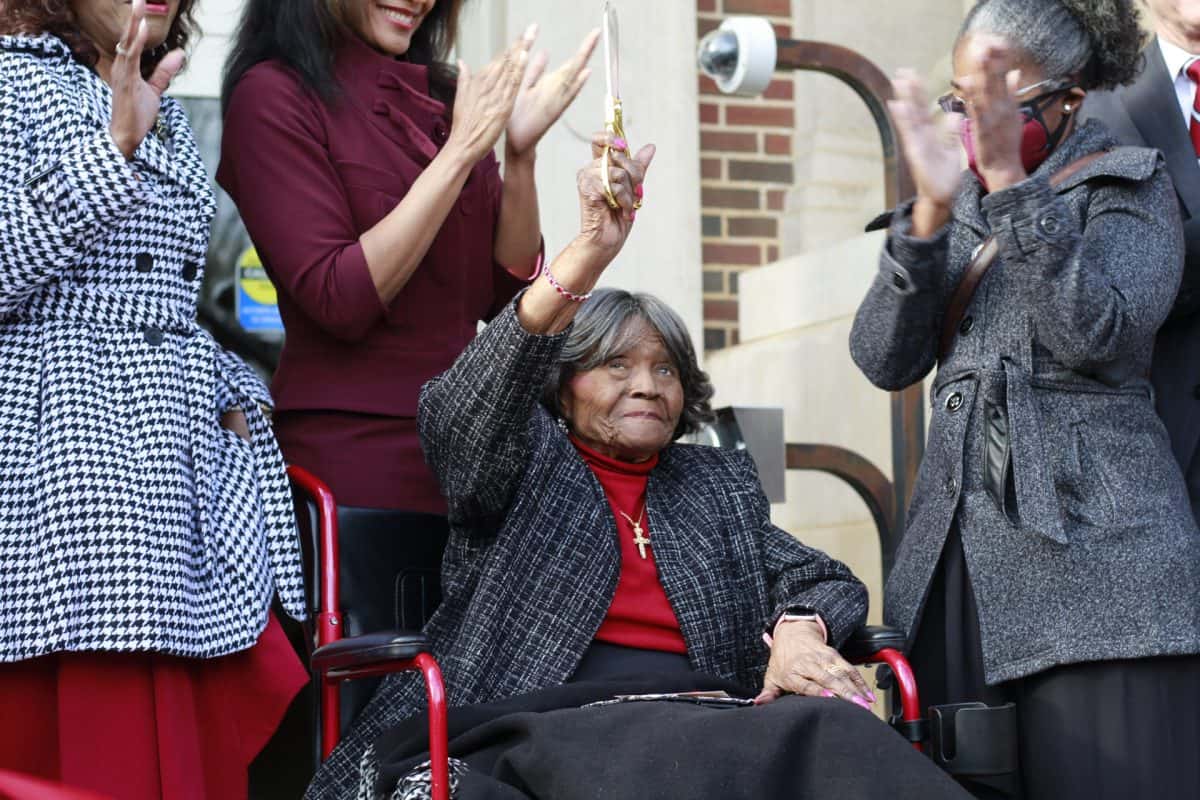The University of Alabama honors women leaders who have helped pave the way for future generations of young women.
At least fourteen buildings at the University have been named after these women leaders, including Julia Tutwiler Hall; Amelia Gayle Gorgas Library; Helen Osband Hall; Mary Burke Hall; Martha Parham Hall; Russell Hall; Mary Hewell Alston Hall; Rhoads Softball Stadium; Mary Harmon Bryant Hall; Shelby Hall, named in honor of both U.S. Sen. Richard Shelby and his wife, Annette N. Shelby; Roberta Alison Baumgardner Tennis Facility; Stran-Hardin Arena; Hewson Hall; and Autherine Lucy Hall.
The first two women to attend the University, Anna Adams and Bessie Parker, joined the Capstone in 1893; since then, countless women have been able to grow and flourish on this campus.
Julia Tutwiler Hall
Julia Tutwiler Hall was the first building on campus to be named after a woman, after the first iteration was built in 1914.
Tutwiler was the daughter of Henry Tutwiler, one of the first professors at the University, and Julia Ashe Tutwiler.
The younger Julia Tutwiler was a prison reformer, women’s education advocate, writer and educator. She was born on Aug. 15, 1841, in Tuscaloosa and became the first and only female president of Livingston Normal College, now the University of West Alabama.
Tutwiler became known as the “mother of co-education in Alabama” after her assistance in helping the admission of 10 young white women at the University. Tutwiler also helped establish the University of Montevallo and was inducted into the Alabama Hall of Fame and the Alabama Women’s Hall of Fame.
Tutwiler was also known as the “angel of prisons” for her work in reforming the correctional system in Alabama. The Julia Tutwiler Prison for Women was named after Tutwiler and currently holds over 700 female prisoners.
The current Tutwiler residence hall is the third iteration and houses over 1,000 young women.
“There were few people as remarkable as Julia Tutwiler, especially in the state’s early history. Combining her keen intelligence, wealth, connections, and a knack for getting things done, Tutwiler was one of a kind,” wrote Erik Evans, a writer for Roll ’Bama Roll.
Tutwiler also wrote the lyrics to what would become the state song for Alabama.
Amelia Gayle Gorgas Library
The Amelia Gayle Gorgas Library was built in 1939 and is the first academic building at the University to be named after a woman.
Gorgas was born on June 1, 1826, in Greensboro and was the daughter of John Gayle and Sarah Ann Haynsworth Gayle.
Gorgas was a hospital matron, postmaster and the first woman librarian at the University. Gorgas was responsible for increasing the collection of volumes from 6,000 to 20,000.
Gorgas and her husband, Josiah Gorgas, lived on campus in what is now known as Gorgas House. During her time as a hospital matron, she nursed students in that very house. In 1971, Gorgas House was added to the National Register of Historic Places. Gorgas was inducted into the Alabama Women’s Hall of Fame in 1977.
The 1896 edition of The Corolla, the University’s yearbook, stated that Gorgas was the “good angel of their college home,” because of her motherly advice, tender care to the sick and words of encouragement.
Autherine Lucy Hall
Autherine Lucy Hall was named after Autherine Lucy Foster, the first African American to attend the University.
Lucy Foster was born on Oct. 5, 1929, in Shiloh, a community about 90 miles south of Tuscaloosa, and was the daughter of Milton Lucy and Minnie Hosea.
Lucy Foster enrolled at the University in 1956 but was expelled after three days due to harassment by white students. She returned to campus, however, in 1988 alongside her daughter and earned her master’s in elementary education.
Lucy Foster was also named a UA Legend and has been inducted into the UA Student Life Hall of Fame and the College of Education Hall of Fame.
Her reliance and dedication will live on in her inspirational story and words of encouragement.
“Love will take care of everything in our world,” Lucy Foster said in the unveiling ceremony, “It’s not your color. It’s not how bright you are. It’s how you feel about those you deal with.”













